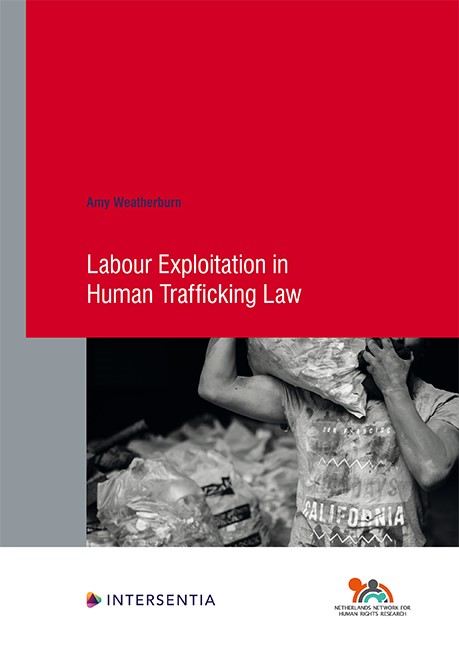Book contents
- Frontmatter
- Foreword
- Contents
- List of Abbreviations
- List of Tables
- Introduction
- PART I Exploitation in Political Theory
- PART II Labour Exploitation in Law
- PART III Labour Exploitation In The Criminal Law Of Belgium And England And Wales
- PART IV Conceptualising Labour Exploitation In Human Trafficking Law
- Conclusion
- Annex 1 List of Cases Accessed in Belgium and England and Wales
- Annex 2 Nationality of Victims and Civil Parties
- Bibliography
- Human Rights Research Series
Foreword
Published online by Cambridge University Press: 10 December 2021
- Frontmatter
- Foreword
- Contents
- List of Abbreviations
- List of Tables
- Introduction
- PART I Exploitation in Political Theory
- PART II Labour Exploitation in Law
- PART III Labour Exploitation In The Criminal Law Of Belgium And England And Wales
- PART IV Conceptualising Labour Exploitation In Human Trafficking Law
- Conclusion
- Annex 1 List of Cases Accessed in Belgium and England and Wales
- Annex 2 Nationality of Victims and Civil Parties
- Bibliography
- Human Rights Research Series
Summary
Until recently, labour exploitation has been the poor cousin of human trafficking. This is so, as up until the conclusion of the 2000 Palermo Protocol dealing with trafficking in persons, the regime of human trafficking was exclusively focused on sexual exploitation, with an emphasis on the prostitution of others.
By comparison, the types of labour exploitation making up part of the current regime of human trafficking flows from a different source, one older and more well-known, one predicated on addressing the worst forms of labour abuses known to humanity: forced labour, servitude and slavery. Adding further weight to the neglected relative metaphor is the fact that it is only in the last five to ten years that labour exploitation as species of human trafficking has gained any semblance of traction amongst policy-makers or within the very consciousness of the most-interested observers.
Dr Weatherburn's monograph, the product of her doctoral dissertation, in conceptualising labour exploitation within the context of human trafficking, has gone beyond the most serious forms of labour exploitation enumerated within the common definition of human trafficking as set out in the 2000 Palermo Protocol, as well as the regional 2005 European, and 2015 ASEAN, anti-trafficking instruments. Weatherburn goes further, in considering forced labour, servitude, and slavery, not as the end point of considerations related to labour exploitation; but rather as a starting point, recognising these as an upper-limit, manifesting for the worst forms of exploitation. Weatherburn's conceptualisation seeks to bring into the equation further forms and manifestation of labour exploitation which fall within a zone as between the upper-limit just noted, and a lower-limit predicated on the standard of Decent Work set by the International Labour Organization.
I will leave it to the reader to discover Weatherburn's articulation of her legal conception of labour exploitation as understood within the framework of human trafficking. That said, the engagement in mixed-methods of analysis, her engagement with theoretical issues flowing from different academic disciplines, and her consideration of case law from Belgium and the United Kingdom, means that Weatherburn has brought much to bear to her considerations. The mobilisation of material is, of course – dare I say: necessary, but not sufficient – to mark out a monograph worth considering.
- Type
- Chapter
- Information
- Labour Exploitation in Human Trafficking Law , pp. v - viPublisher: IntersentiaPrint publication year: 2021



